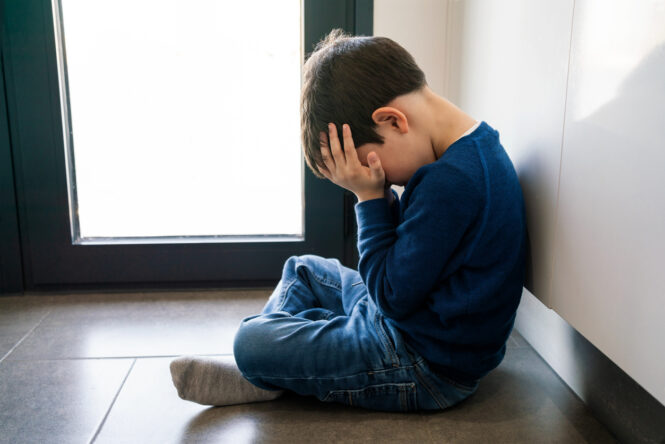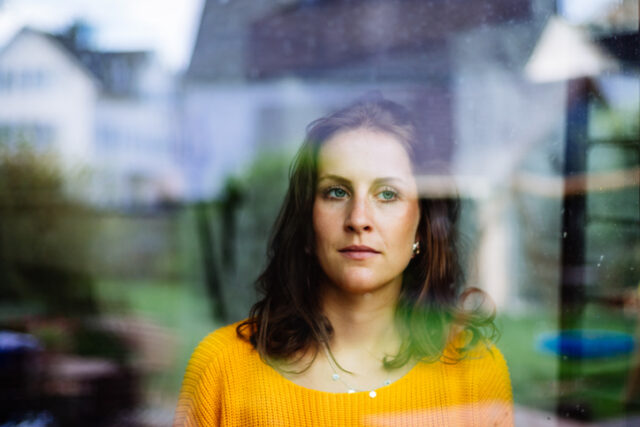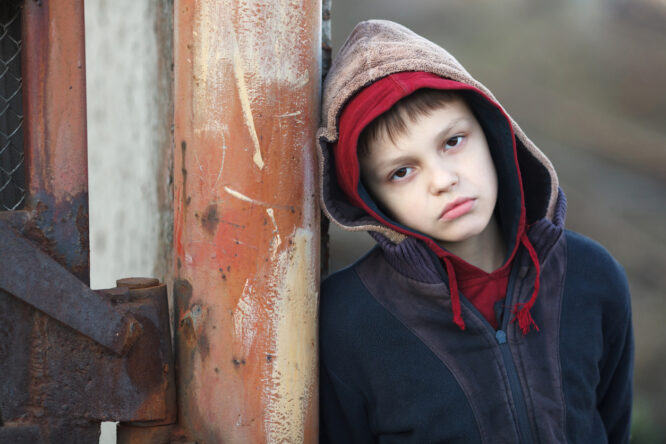Not everyone grows up with the kind of affection that helps them feel safe, soothed, and genuinely cared for.

Some families show love in subtler ways, and others withhold it entirely, whether intentionally or not. If you often find yourself unsure of how to connect, soothe, or even trust people in a meaningful way, it might trace back to emotional gaps from early life. These aren’t just quirks, either—they’re echoes of what you might have missed as a kid. If you relate to these experiences, give yourself some grace and recognise that identifying problematic behaviours is the first step to actually changing them.
1. Physical affection makes you tense instead of comforted.

If hugs, hand-holding, or even casual touch make you freeze or feel awkward, it might not just be personal preference. For many people, affection didn’t feel safe—it was rare, unpredictable, or completely absent. As time goes on, your body can learn to associate closeness with discomfort. So instead of feeling soothed, you feel exposed. That kind of wiring can be hard to unlearn, especially if no one ever taught you touch could be gentle and safe.
2. Compliments make you feel suspicious or uncomfortable.

When someone says something kind, your first instinct might be to question it. What do they want? Are they being sarcastic? Do they really mean it? That kind of defensiveness often forms when you didn’t grow up with steady reassurance. Without consistent affirmation in childhood, kindness can feel unfamiliar, like a trick instead of a truth.
3. You constantly downplay your needs.

You may say things like “It’s fine, don’t worry about it” even when you’re hurting. You learned to shrink your needs because maybe expressing them once led to rejection or nothing at all. It becomes a habit, convincing yourself you’re okay when you’re not, just to avoid the shame or vulnerability that came from needing something in the first place.
4. You crave closeness, but feel emotionally distant.

You might deeply want intimacy and connection, but when it shows up, you retreat. It’s not that you don’t care—you just don’t know what to do with it when it’s finally offered. This push-pull pattern is common when affection wasn’t part of your early foundation. The longing is there, but the map is missing. You’re left navigating something that was never modelled clearly for you.
5. You apologise for things that don’t need an apology.

Saying “sorry” becomes your reflex, even when you haven’t done anything wrong. You might feel like any tension, silence, or discomfort must somehow be your fault. This often comes from homes where love was conditional, where mistakes weren’t met with warmth, and peace came from keeping everyone else happy, not being yourself.
6. You feel guilty when someone shows you kindness.

If someone takes care of you, supports you, or offers something freely, you might feel uncomfortable or even unworthy. You start looking for ways to repay them immediately. That guilt can come from not being used to receiving affection without a price. When love came with conditions, it’s hard to accept generosity without expecting strings.
7. You don’t know how to ask for comfort.

Even when you’re struggling, you hesitate to reach out. You might wait for someone to notice, hoping they’ll read between the lines, but asking directly feels almost impossible. This often starts in childhood when seeking comfort was ignored or met with annoyance. So you stop asking—not because you don’t need support, but because you learned no one would respond.
8. You find yourself overexplaining your emotions.

You might feel like your feelings aren’t valid unless you can justify them in great detail. You try to make them sound rational, measured, or small—never messy, never too much. This comes from a place of fear: the idea that unless your emotions are perfectly packaged, they won’t be accepted. When affection was conditional, emotional safety often was too.
9. You’ve built your identity around independence.

You take pride in handling things alone. You’re strong, capable, self-sufficient. But sometimes, that independence is armour—not just a trait, but a way to survive without needing anyone. If no one showed up for you emotionally as a child, relying on yourself might have been the only reliable option. Eventually, it becomes your default, even when you desperately need connection.
10. Emotional warmth from other people feels overwhelming.

When someone shows up with consistent affection, support, or love, it can feel almost invasive. You might pull back or overthink their intentions. This isn’t because you don’t want closeness—it’s because your nervous system doesn’t know how to handle it. When affection wasn’t safe or familiar growing up, even healthy love can feel foreign.
11. You feel uncomfortable being fully seen.

Letting someone get close enough to see your flaws, insecurities, or raw emotions might feel terrifying. You might keep things surface-level, even in close relationships. When you didn’t receive unconditional affection as a child, being truly seen often felt dangerous. You learned that vulnerability could lead to rejection, not connection.
12. You’re drawn to emotionally unavailable people.

You may find yourself chasing after people who can’t give you what you need. You feel a strong pull toward partners or friends who stay distant, distracted, or inconsistent. This pattern often mirrors early experiences. When affection was unpredictable, you might subconsciously recreate that same emotional chase, trying to win the love you didn’t get.
13. Reassurance feels like a temporary fix.

No matter how many times someone says they care about you, it never fully sinks in. You might believe them in the moment, but hours or days later, the doubts creep back in. This isn’t about being dramatic—it’s about emotional memory. If you grew up without stable affection, your system doesn’t know how to hold onto reassurance. It slips through like water.
14. You feel emotionally responsible for other people.

When someone around you is upset, you rush to fix it, even if it’s not your problem. You feel pressure to be the emotional caretaker, even when it drains you. This can stem from childhoods where your emotional needs were ignored, but you were expected to manage other people’s moods. So, you grew up becoming hyper-attuned to everyone but yourself.
15. You find it easier to give love than receive it.

You might be deeply caring, generous, and empathetic, but when someone tries to return that care, you freeze. Receiving love feels unfamiliar, even uncomfortable. You learned to express love outward, but no one taught you how to accept it inward. It’s easier to nurture than be nurtured because one was practised and the other never felt safe.
16. Deep down, you still wonder if you’re loveable.

Even if you’ve achieved a lot, have good relationships, or know you’re a kind person, there might still be a quiet part of you that doubts it all. A voice that says, “They’ll leave once they see the real me.” This isn’t vanity or insecurity—it’s an old emotional wound. When affection was scarce or conditional growing up, love can feel like something you still have to earn, instead of something you deserve just by being here.




